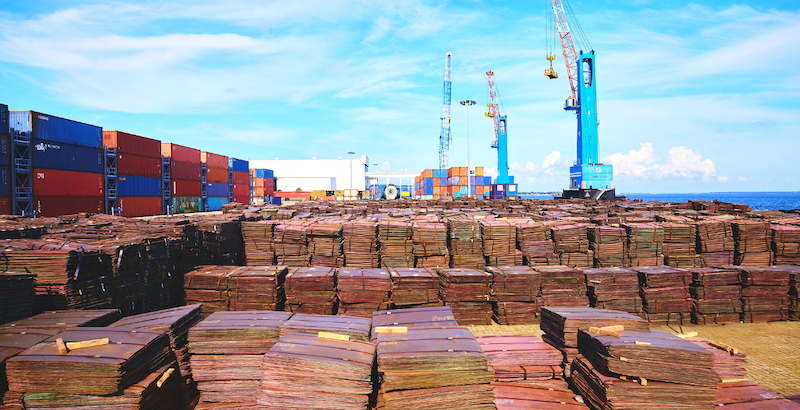Florida’s 16 seaports posted a new record high of 112.5 million tons of cargo received during 2022, a 6% increase over 2021, according to a newly released report from the Florida Seaport Transportation and Economic Development Council (FSTED).
Further, Florida’s strong performance to answer supply chain demands by encouraging shippers to change shipping lanes and call on Florida’s uncongested ports, has positioned Florida to gain an even larger market share over the next five years, FSTED said.
As the Seaport Mission Plan shows, strong investments in Florida’s 16 publicly owned seaports have well-positioned them as reliable and resilient, and ready to seize the opportunity to become a global hub by capturing an even larger share of international trade and related commercial activities, FSTED said.
“Florida seaports have been flexing their muscles and taking a more aggressive approach to target maritime decision makers,” Michael Rubin, FSTED administrator and president and CEO of the Florida Ports Council, said in a statement. “We know the country’s 1970s-era supply chain is broken, so we’re looking beyond to share how Florida’s seaports are the gateway to the world.”
According to the report, Florida is a top maritime trade state and home to the world’s largest cruise ports. Cargo and cruise activities support 900,000 direct and indirect jobs, $117.6 billion in economic value, and
Key 2022 figures from the Seaport Mission Plan show that TEUs (20' equivalent units) totaled 4,310,054. In addition, container tons came in at 26,167,200; dry bulk tons, 22,426,786; liquid bulk tons, 54,899,124; breakbulk tons, 9,038,895; total tonnage, 112,532,005; vehicles: 631,157; and passengers, 10,769,213.
According to the FSTED report:
• Ten of Florida’s 16 established and emerging seaports handled cargo in 2022;
• Eight handled passenger movements by cruise ship, ferry, and/or day-cruise vessel;
• Florida is home to the world’s top three cruise homeports: Port Miami, Port Canaveral and Port Everglades;
• Florida has 20 foreign trade zones (FTZs);
• Florida has six seaports ranked in the Top 30 U.S. Ports by Logistics magazine.



.JPG.small.400x400.jpg)

